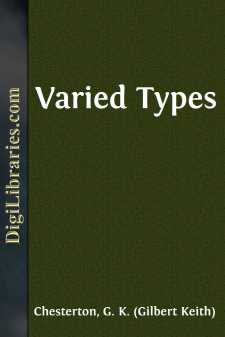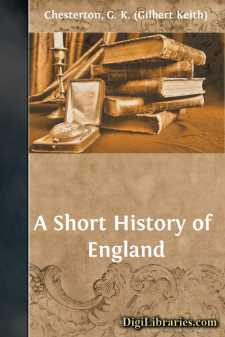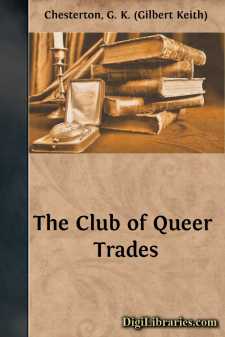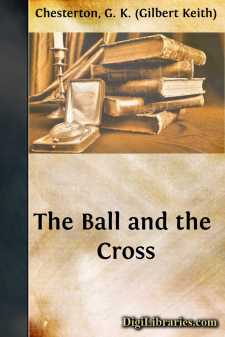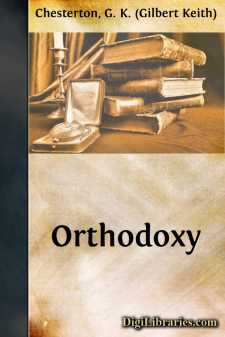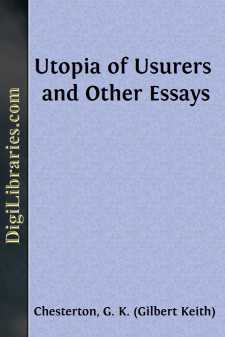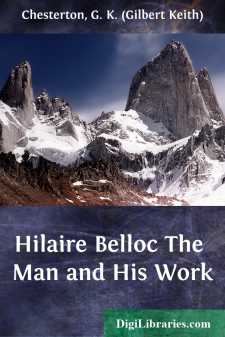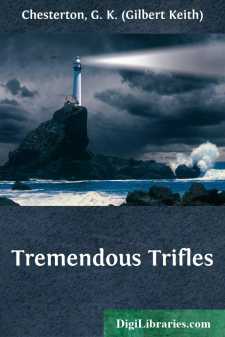Categories
- Antiques & Collectibles 13
- Architecture 36
- Art 48
- Bibles 22
- Biography & Autobiography 813
- Body, Mind & Spirit 142
- Business & Economics 28
- Children's Books 17
- Children's Fiction 14
- Computers 4
- Cooking 94
- Crafts & Hobbies 4
- Drama 346
- Education 46
- Family & Relationships 57
- Fiction 11829
- Games 19
- Gardening 17
- Health & Fitness 34
- History 1377
- House & Home 1
- Humor 147
- Juvenile Fiction 1873
- Juvenile Nonfiction 202
- Language Arts & Disciplines 88
- Law 16
- Literary Collections 686
- Literary Criticism 179
- Mathematics 13
- Medical 41
- Music 40
- Nature 179
- Non-Classifiable 1768
- Performing Arts 7
- Periodicals 1453
- Philosophy 64
- Photography 2
- Poetry 896
- Political Science 203
- Psychology 42
- Reference 154
- Religion 513
- Science 126
- Self-Help 84
- Social Science 81
- Sports & Recreation 34
- Study Aids 3
- Technology & Engineering 59
- Transportation 23
- Travel 463
- True Crime 29
G. K. (Gilbert Keith) Chesterton
Gilbert Keith Chesterton, often referred to as G.K. Chesterton, was an English writer, philosopher, and critic born on May 29, 1874. Renowned for his witty and insightful prose, he authored the popular "Father Brown" detective series and numerous essays on various topics, including literature, politics, and theology. His works, such as "Orthodoxy" and "The Everlasting Man," have had a lasting influence on Christian apologetics and literary criticism.
Author's Books:
Sort by:
CHARLOTTE BRONTË Objection is often raised against realistic biography because it reveals so much that is important and even sacred about a man's life. The real objection to it will rather be found in the fact that it reveals about a man the precise points which are unimportant. It reveals and asserts and insists on exactly those things in a man's life of which the man himself is wholly...
more...
INTRODUCTION It will be very reasonably asked why I should consent, though upon a sort of challenge, to write even a popular essay in English history, who make no pretence to particular scholarship and am merely a member of the public. The answer is that I know just enough to know one thing: that a history from the standpoint of a member of the public has not been written. What we call the popular...
more...
Chapter 1. The Tremendous Adventures of Major Brown Rabelais, or his wild illustrator Gustave Dore, must have had something to do with the designing of the things called flats in England and America. There is something entirely Gargantuan in the idea of economising space by piling houses on top of each other, front doors and all. And in the chaos and complexity of those perpendicular streets anything...
more...
I. A DISCUSSION SOMEWHAT IN THE AIR The flying ship of Professor Lucifer sang through the skies like a silver arrow; the bleak white steel of it, gleaming in the bleak blue emptiness of the evening. That it was far above the earth was no expression for it; to the two men in it, it seemed to be far above the stars. The professor had himself invented the flying machine, and had also invented nearly...
more...
I INTRODUCTION IN DEFENCE OF EVERYTHING ELSE THE only possible excuse for this book is that it is an answer to a challenge. Even a bad shot is dignified when he accepts a duel. When some time ago I published a series of hasty but sincere papers, under the name of "Heretics," several critics for whose intellect I have a warm respect (I may mention specially Mr. G.S.Street) said that it was all...
more...
A SONG OF SWORDS "A drove of cattle came into a village called Swords; and was stopped by the rioters."—Daily Paper. In the place called Swords on the Irish roadIt is told for a new renownHow we held the horns of the cattle, and howWe will hold the horns of the devils nowEre the lord of hell with the horn on his browIs crowned in Dublin town. Light in the East and light in the West,And light...
more...
INTRODUCTION A section of a long and splendid literature can be most conveniently treated in one of two ways. It can be divided as one cuts a currant cake or a Gruyère cheese, taking the currants (or the holes) as they come. Or it can be divided as one cuts wood—along the grain: if one thinks that there is a grain. But the two are never the same: the names never come in the same order in actual time...
more...
When I first met Belloc he remarked to the friend who introduced us that he was in low spirits. His low spirits were and are much more uproarious and enlivening than anybody else's high spirits. He talked into the night; and left behind in it a glowing track of good things. When I have said that I mean things that are good, and certainly not merely bons mots, I have said all that can be said in...
more...
The Problem of a Preface A peculiar difficulty arrests the writer of this rough study at the very start. Many people know Mr. Bernard Shaw chiefly as a man who would write a very long preface even to a very short play. And there is truth in the idea; he is indeed a very prefatory sort of person. He always gives the explanation before the incident; but so, for the matter of that, does the Gospel of St....
more...
I. Tremendous Trifles Once upon a time there were two little boys who lived chiefly in the front garden, because their villa was a model one. The front garden was about the same size as the dinner table; it consisted of four strips of gravel, a square of turf with some mysterious pieces of cork standing up in the middle and one flower bed with a row of red daisies. One morning while they were at play...
more...


